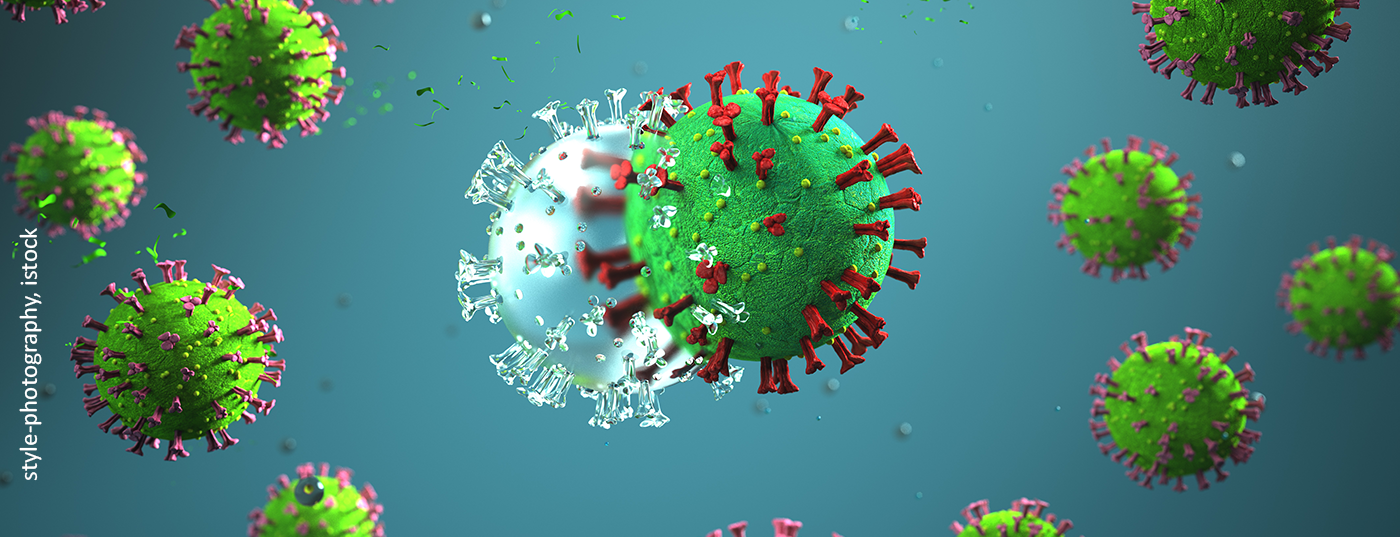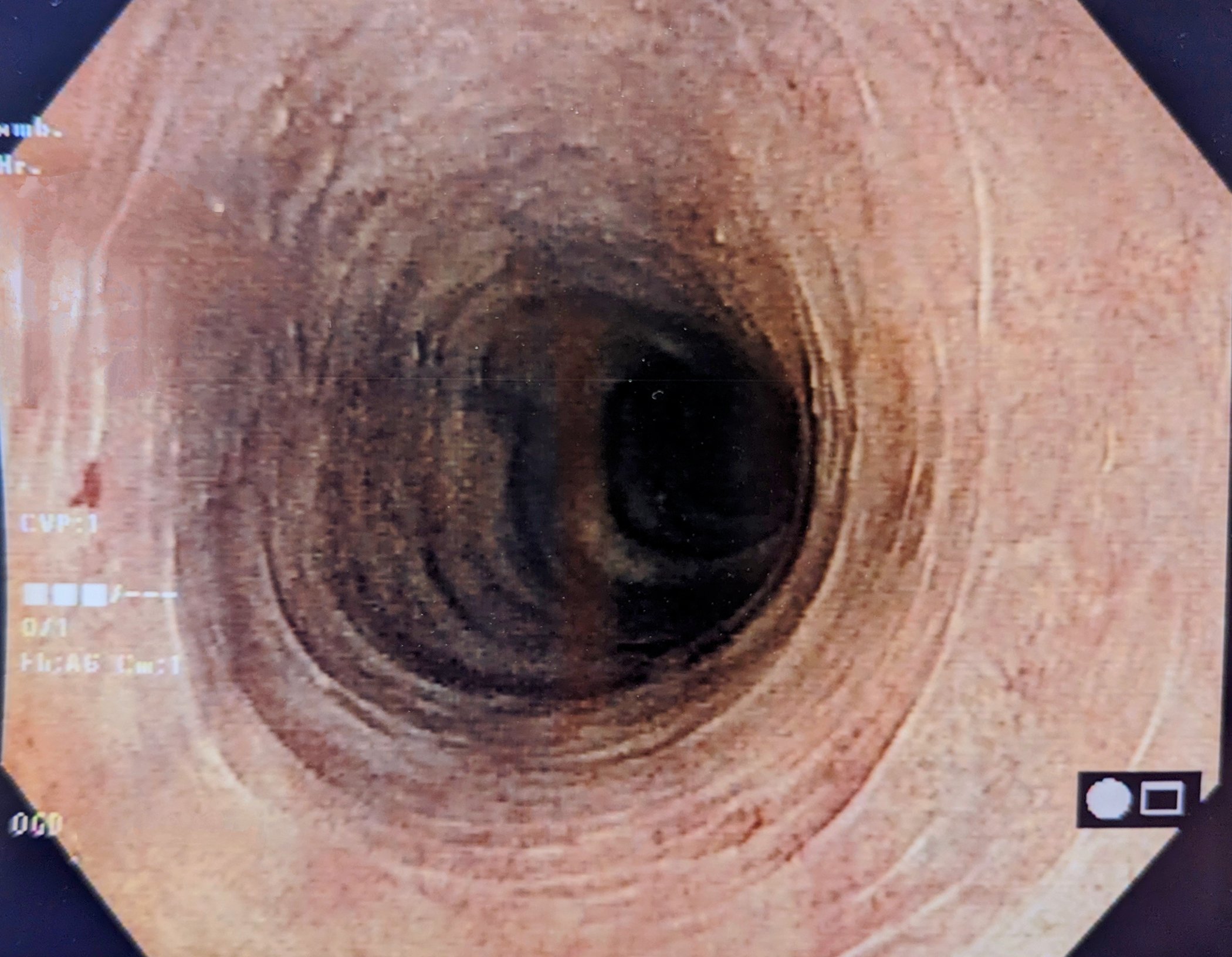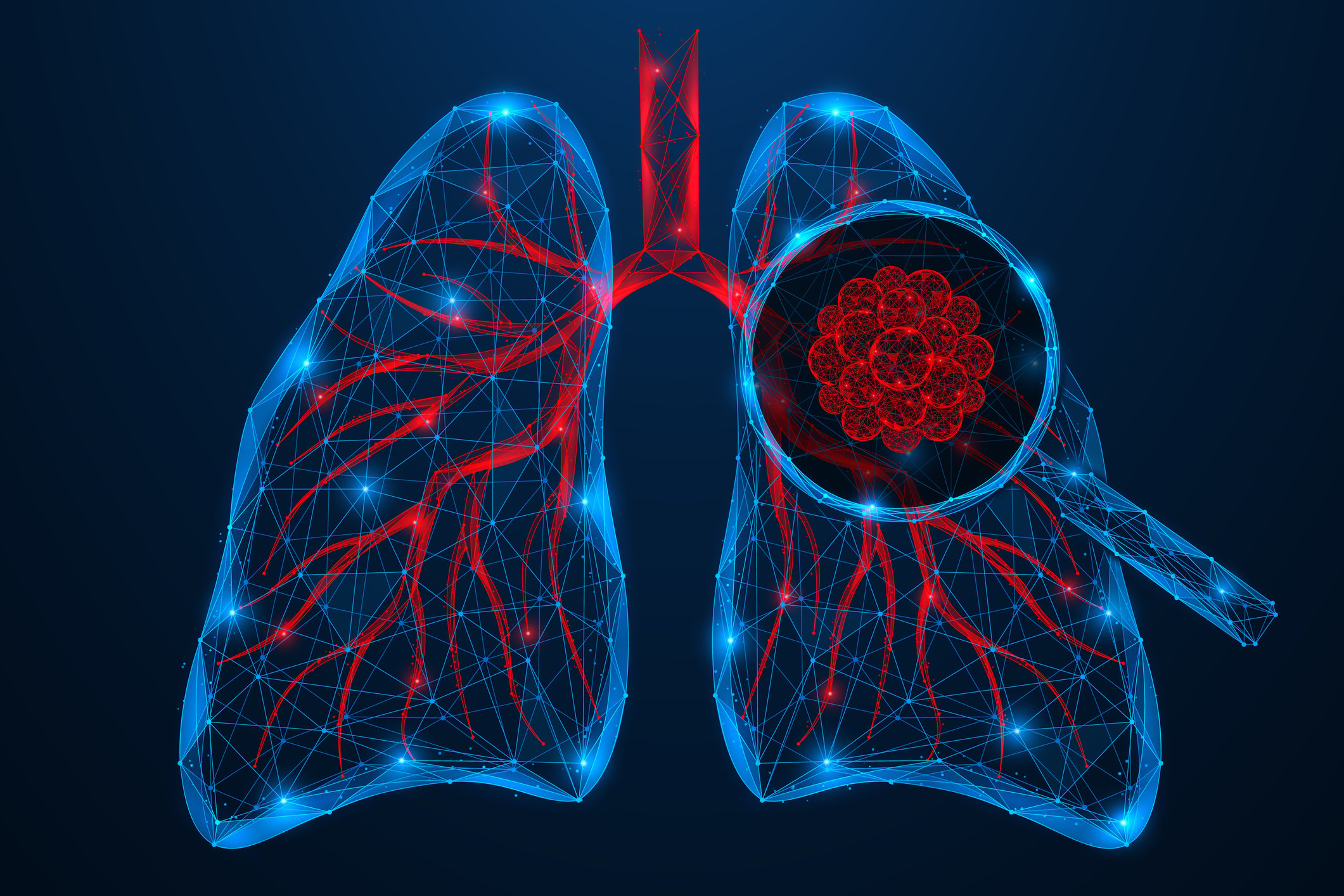Recently, there has been a Corona hotspot in the U.S., with many affected individuals being vaccinated. How is this to be classified? The long-term effects of COVID-19 will probably continue to be a concern in the future – what is known about them? These and other questions are being investigated in numerous smaller and larger studies around the globe.
In the US state of Massachussets, an outbreak caused by the delta variant of SARS-CoV-2 occurred in the context of festivities during and after the national holiday, with an unusually high number of breakthrough infections in vaccinated individuals [1]. The tourist town of Provincetown (Barnstable County) was particularly affected. By July 26, the number of infections among locals alone had risen to 469. The outbreak came as a surprise to authorities because 69% of the population in Massachusetts had already been fully vaccinated prior to July 4. . Also, 346 of the 469 confirmed cases (74%) were vaccinated through: 159 had received the Biontech/Pfizer mRNA vaccine and 131 had received the related Moderna vaccine; 56 had received the Janssen vector-based vaccine.
|
Children with cancer: high risk for severe covid progression Analysis of worldwide registry data published in Lancet Onco found that approximately one in five adolescents with cancer becomes severely ill with corona infection, and approximately 4% die [5,6]. For the study, U.S. researchers from St. Jude Children’s Research Hospital in Memphis analyzed data from 1,300 children and adolescents in the Oncology Global Registry of Covid-19 in Childhood Cancer. Around 20% of those affected required intensive ventilation and/or intensive medical care. Children with intensive chemotherapy, neutropenia, or lymphopenia were particularly at risk. Overall, however, the prognosis for children and adolescents with cancer using Covid-19 is better than that for corresponding adults – where the mortality rate is 10-30%, depending on the study. |
Case numbers high, but course usually mild
The clinical course of breakthrough infections, which occurred 6 to 178 days (median 86 days) after completion of vaccination, is consistent with previous experience that no vaccine provides 100% protection against covid-19 but generally prevents severe courses. 274 Patients complained mostly of cough, headache, sore throat, muscle aches, and fever only. Only 4 of the patients with vaccine breakthroughs required hospitalization. One 5th hospitalized patient was not vaccinated. A total of 3 of the 5 hospitalized individuals had preexisting conditions. However, the clustering of cases was unusual: in the aftermath of the outbreak, the 14-day incidence in Barnstable County increased from 0 to 177 per 100 000 in less than 3 weeks. The Center for Disease Control and Prevention (CDC) attributes the rapid increase in numbers to the delta variant, which was found in 89% (119 of 133) of the sequenced virus samples. Delta AY.3 subtype was detected in 1 case, and sequencing was unsuccessful in the remaining 13 samples.
What is known about risk groups for breakthrough infections?
He said that persons of advanced age and/or with certain comorbidities are particularly at risk for vaccine breakthroughs associated with the delta variant. Thus the statement by the U.S. CDC on a New York Times analysis that breakthrough infections currently accounted for 12-24% of covid-19 hospitalizations in an analysis of data from seven U.S. states [2,3]. 74% of breakthrough infections would have occurred in those over 65 years of age. Thus, since at-risk groups are most at risk, this underscores the importance of booster vaccinations for affected individuals, he said. At the same time, the authors point out that breakthrough infections are rare overall and there is no doubt about the strong protective effect of the vaccines.
|
Risk of permanent kidney damage increased after covid disease In a cohort study of 1.7 million U.S. veterans, 30-day survivors of covid disease were 35% more likely to have permanent kidney damage compared with uninfected veterans [7,8]. In hospitalized covid patients, the reduction in estimated glomerular filtration rate (eGFR) was -5.20 and in those receiving intensive care -7.69. However, the researchers also found a -3.26 reduction in eGFR in covid patients who did not require hospitalization. |
Study on Long-COVID
Researchers have identified over 200 symptoms in 10 affected organs in Long-Covid [4]. They were able to divide the symptoms into three clusters: Symptoms in cluster 1 appear early in the course, peak after 2-3 weeks, and then slowly subside within 90 days. They are mainly gastrointestinal and respiratory complaints. Symptoms recorded in cluster 2 peaked about 7 weeks after onset and declined significantly more slowly than those in cluster 1. These included neuropsychiatric and cardiovascular complaints, for example, but the researchers also assigned fatigue and dermatological manifestations such as the frostbite-like changes on the toes to this cluster. In contrast, symptoms in cluster 3 begin mildly and do not peak until about 10 to 15 weeks. They show little improvement over time. These include allergies, tinnitus, neuralgia, or the concentration disorders known as “brain fog.” For the study, the team had surveyed about 3800 patients [9].
Literature:
- “U.S.: Delta outbreak among vaccinated people in tourist resort,” Aug. 2, 2021, www.aerzteblatt.de, last accessed Sept. 05, 2021.
- “Delta Variant and Vaccine Breakthroughs,” August 19 update, , www.aerztezeitung.de, last accessed Sept. 05, 2021.
- New York Times, 8/17/21, www.nytimes.com/2021/08/17, last accessed 09/05/2021.
- “Long-COVID: More than 200 symptoms recorded,” www.aerztezeitung.de, 07/16/2021 (last accessed 09/06/2021).
- “Children with Cancer Are at High Risk for Severe COVID Progression,” Update, August 31, www.aerztezeitung.de (last accessed Sept. 06, 2021).
- Mukkada S, et al: Lancet Oncol 2021; online Aug 26, (last accessed Sep 06, 2021).
- “COVID-19 disease is associated with a higher risk of permanent kidney damage,” Update, September 2, 2021, www.aerztezeitung.de (last accessed Sept. 06, 2021).
- Bowe B, et al: Kidney Outcomes in Long COVID, JASN September 2021, DOI: https://doi.org/10.1681/ASN.2021060734
- Davis HE, et al: E Clinical Medicine 2021; DOI: https://doi.org/10.1016/j.eclinm.2021.101019
HAUSARZT PRAXIS 2021; 16(9): 41 (published 9/19-21, ahead of print).











